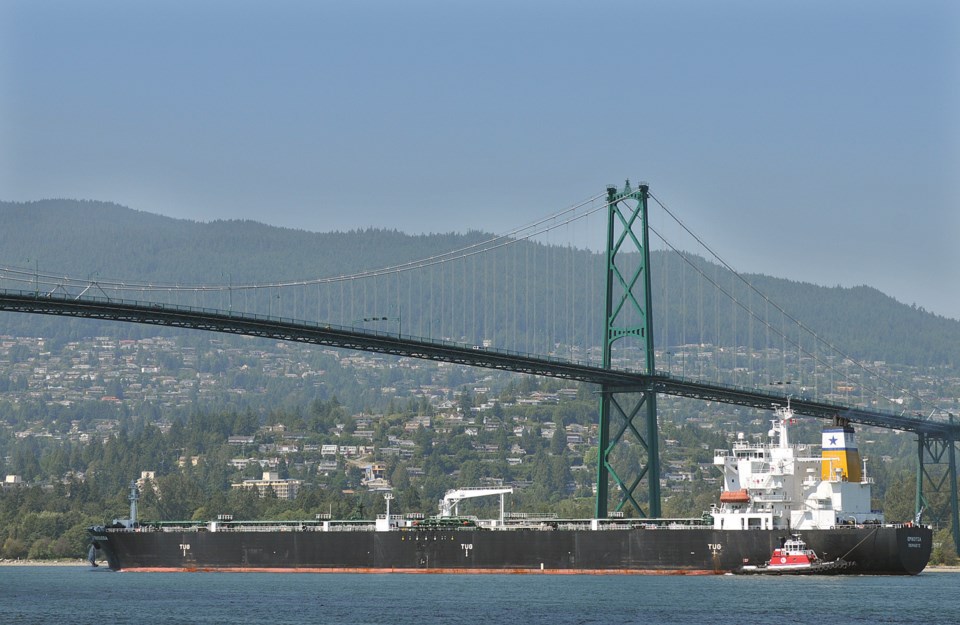Municipal and regional emergency planners do not have adequate information to develop response plans and ensure public safety in the event of an oil tanker spill in and around Vancouver waters.
Deputy city manager Sadhu Johnston reached that conclusion in a report he presented to city council Wednesday that outlined how current response capacity to a spill is “complicated, uncoordinated, insufficient and untested.”
“In summary, our emergency responders believe that we have insufficient information to plan a safe response — and we do play a role in that response,” said Johnston, who noted the job of responding to a spill and paying to clean it up is mired in a “complicated web” of regulatory bodies. “It’s unclear who’s responsible for doing what.”
Even Western Canada Marine Response Corporation, which is based in Burnaby and funded by the oil shipping industry and Transport Canada, cannot handle a spill of more than 20,000 tonnes of oil, he said.
Johnston pointed out a tanker leaving Kinder Morgan’s Westridge terminal in Burnaby transports an average of 82,000 tonnes of oil in one shipment through local waters and out to sea.
“So there’s a huge gap there that we see — if there were to be a significant event in and around Vancouver — that we just don’t have the capacity to do it, and that’s the existing traffic that’s moving through these waters,” he said, noting the 28-boat marine response corporation is responsible for 27,000 kilometres of B.C. shoreline.
The purpose of Johnston’s presentation was to update city council on the risks and impacts of increased tanker traffic in and around Vancouver waters. Council requested the report because Kinder Morgan is preparing to file its application with the National Energy Board to almost triple the amount of oil it processes through its Burnaby terminal.
Johnston said such an increase — from 300,000 barrels per day to 890,000 — will mean the average of five tankers per month passing through Vancouver Harbour and Burrard Inlet will jump to 34.
Upon Johnston’s request, Mayor Gregor Robertson recommended council seek intervenor status at the National Energy Board hearings. Robertson said the staff report provided further evidence the threat of an oil spill poses unacceptable risks to the city’s economy and environment.
“Based on the work done to date, this is the best next step we can take to look after the interests of our city and citizens,” said the mayor, whose recommendation will be debated at a Dec. 18 council meeting.
If selected as an intervenor, the City of Vancouver can present evidence, question witnesses and make final arguments in the hearings, which are expected to commence next year. Johnston warned council intervenor status could be expensive and time-consuming, although he didn’t provide a cost.
“But it does get you a seat at the table, so to speak,” he added.
NPA Coun. George Affleck said the report pointed out the potential harm of increased oil production and tanker traffic but lacked any mention of benefits that increase might have for the economy.
“From a Vancouver perspective, we really see the negative impacts above and beyond the positive impacts, given the jobs aren’t here and the activities aren’t actually taking place within our jurisdiction,” Johnston said. “So I think, at this point, we don’t see much positive economic impact for the city of Vancouver.”




